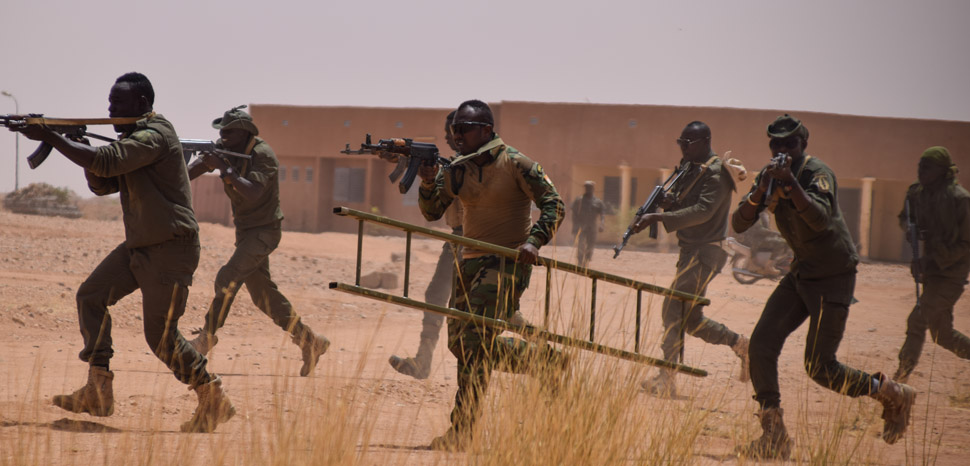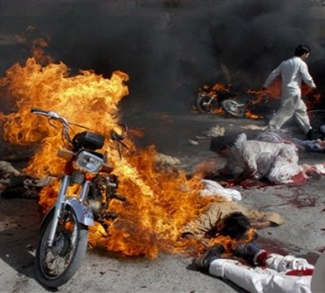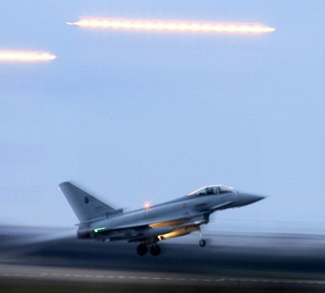Extremist violence has dominated the attention of much of the globe for nearly 20 years. As attention shifted to the threat of terrorism, great power rivalries were downplayed as developed countries joined forces to battle extremism.
That sense of a common front was temporary. The end of ISIS’s caliphate, trade tensions, and other events of the past two years have refocused America and its allies on the enduring reality of great power rivalry. The states jockeying for regional supremacy in Asia and Europe are shaping trade relations, governance norms and values, and the economic and political prospects of millions of ordinary people.
Great power rivalry never went away. It is real and promises to intensify in the years ahead.
Yet extremist violence continues, including in Syria and Iraq, where ISIS has yet to be defeated. This violence diminishes the lives of millions in the Mideast, Africa, and other regions. Of course, there’s been an uptick in violence directed at aid workers, both by extremist groups and states claiming to opposed them. Just as much as any revanchist state, extremist violence still threatens the international community built over the past 70 years, and all its done to reduce poverty and suffering.
Violent extremism and the threat it still poses does not exist in a vacuum. It is largely the outgrowth of extreme poverty. Public and private organizations lack the resources to invest in and provide the education, health care, economic opportunity, and effective governance that are the necessary conditions for a peaceful society.
This poverty, in turn, is only effectively addressed as it has been for decades: through sustained economic and social development.
This is the work of international development organizations. The most important lesson our organization has learned while doing this work since 1951 is that development is a years-long process. While large and expensive top-down projects can result in impressive physical changes and temporary income gains, they rarely result in the transfer of skills and attitudes that equip communities to initiate their own sustained development. Lasting development is achieved when communities identify their own needs and organize themselves to address their own concerns. Effective international non-government organizations like ours assist this process.
An example of where this is working is Mali. Insurgencies by extremist groups in Mali and neighboring countries feed off and take advantage of deep poverty. Militant groups often pay more than what people can earn in the agricultural sector, which dominates in Mali and other Sahel nations. Signing on for violence is often as much an economic as an ideological decision.
To help overcome this, we work with local community groups in Mali’s Segou region. The communities in Segou, a semi-arid region, have limited livelihood options. The majority of residents are nomadic pastoralists and semi-sedentary farmers.
We’ve worked in and with these communities for 11 years. During that time, village associations and partner groups have greatly increased their capacity to initiate and manage their own development projects. These include literacy training and basic sanitation and health training. Farmers have greatly expanded their agricultural output using sustainable techniques designed to lower input costs and increase climate change resilience.
Perhaps most important, villagers use a savings and credit program to generate capital to invest in improved farming implements, more productive livestock, small businesses, their childrens’ education, and more. Participants become highly dependent on one another to improve their living and social conditions. This enhances community solidarity and weakens the appeal of criminal and/or militant groups that may attempt to recruit members.
We and other international development organizations run similar programs in Burkina Faso, another country threatened by extremist groups. These too have shown impressive results in reducing poverty and strengthening communities in sustainable ways. With all of these communities in Burkina Faso and Mali, the development process takes time, so we will work with them for as long as it takes before they are “graduated.” Once graduated, communities possess the capacity to sustain their own initiatives and advocate with government bodies for the public investments necessary to accelerate development and wealth creation. Over time, this political involvement further strengthens commitment to peaceful change.
More than any military solution, it is development that will drain the life from extremist ideology and violence. As General Paul Selva, vice chairman of the Joint Chiefs of Staff stated: “Dollar for dollar, every dollar spent on diplomacy and development — the growth of democratic institutions or at least civil institutions in countries that allow their leadership to be sensitive to the needs of their citizens — are immensely more effective … than having to deploy soldiers, sailors, airmen or marines to a crisis…”
Great power rivalry will always be with us. Extreme poverty and the violence it germinates do not have to be.
Kate Schecter is president and CEO of World Neighbors, a global development group based in Oklahoma City, Oklahoma.
The opinions, beliefs, and viewpoints expressed by the authors are theirs alone and don’t reflect the official position of Geopoliticalmonitor.com or any other institution.




